It was The Last Chance
It was a night club in the desert called The Last Chance,
A cluttered dive of stones and wheels,
It was a refuge for the rootless of the world
Washed up like driftwood on the sand,
And we were there.
It seems so long ago.
They came from nowhere,
The lost, the broken and the mad, as if from nowhere,
They blundered in like blind invaders,
While Mahalia boomed a gospel song
And candles blurred the gloom,
They drank and argued till the dawn
Had drained the night away.
[Spoken]
Among the seekers after oil or truth or a home,
Among the businessmen, the pickpockets and whores,
Among the soldiers and the tourists,
Some had names
And histories.
Meier with his stone-ball head, built like a butcher,
Which he was.
He made his money dealing in pork,
Though not on the Sabbath.
They said his parents were killed in Belsen,
They said he saw his sister raped,
But no-one really knew.
Stories swirled about like dust on the desert wind.
You never knew what was true.
And in the end it didnt really matter.
There he was.
And Sam with his mournful expression
And his mobile face like crumpled leather,
There he was,
A dancer- light, light on his feet.
Theirs was a needle match, each trying to outscore the other,
Sam out of mischief, Meier out of a desire for victory.
So they came out of opposite corners of the ring in every argument.
Everything was an argument.
Like the Sinai campaign.
For Meier that was a time of glory.
That was when we found out we were strong, he said.
Strong shrugged Sam. Who needs it?
So Meier pinned his arm behind his back and
forced him to his knees. You do, Jew, he said.
The general opinion was that Meier won that round.
They came from nowhere,
The lost, the broken and the mad, as if from nowhere,
They blundered in like blind invaders,
While Mahalia boomed a gospel song
And candles blurred the gloom,
They drank and argued till the dawn
Had drained the night away.
Do you remember
The day the Bedouins came to town?
I still remember
The women waiting still as stone,
Their silent shapes cocooned in black
Against the whitewashed walls that echoed back the sun
To blind the eyes.
Ghosts from another world.
[Spoken)]
You know what's wrong with Israel? said Meier one night.
I know, said Sam, dancing in grinning. Too many Arabs. Right?
Wrong, said Meier. Too many Jews.
Look at them. Rabble. They don't speak Hebrew, half of them.
Rabble. Take the Yemenis. Donkey riders.
Never set foot in a bus before they came here.
And their women - all whores.
What about Rumanians? Sam threw in obligingly.
All thieves, said Meier.
They say all Hungarians are bald, said Sam, and raised his eyes to the heavens.
Meier ignored him.
We must forge one nation, he said.
We must weld the youth into one nation.
Why? said Sam. How? said Sam.
In the fire, Meier went on.
In the heat of battle, we will become one nation.
Under King Solomon, Israel was a great nation
Rich and powerful.
One day she will be so again.
Sam sighed. We are Jews, he said.
Why should our children turn into Israelis?
History loves a winner, said Meier.
No more guilt, no more fear, no more being strangers,
No more being different I like being different, said Sam, throwing his arms out.
I want to be different.
Meier stood up and pointed a thick finger and yelled.
He thinks he's funny. This Jew thinks he's funny.
No wonder they fed you into the gas ovens.
Do you remember
The day the Bedouins came to town?
I still remember
The women waiting still as stone,
Their silent shapes cocooned in black
Against the whitewashed walls that echoed back the sun
To blind the eyes.
Ghosts from another world.
Across the desert
The road carves southward to the Red Sea
through the desert,
A cratered moonscape made of sand,
We saw the burning fists of rock
And felt the wind that sucked us dry
And heard those urging, stirring songs
Always new lands to tame.
[Spoken]
Meier liked telling stories of how,
In the War of Independence, he blew up Arab houses.
He knew Sam would become agitated.
It would turn Sam inside out.
It is not true, he said. You did not do that.
Why not? said Meier. Facts.
Now there's nothing left for them to return to.
Only stones. Let them find homes with their own kind.
I want nothing to do with such facts, said Sam.
Where would you be without them? sneered Meier.
We made this country, he said.
Before us, what was there? Marshland. Desert.
The promise was to us. The desert shall blossom like a rose.
There were people, said Sam. Like us.
With hopes and dreams.
Hopes? Dreams? Meier spat the words out.
You think you can buy the future with dreams?
And he took a pile of notes from his pocket and threw them on the table.
There, he said. Facts. Money. Don't give me your dreams.
Sam turned away and began to find a dance with his feet
Like a child taking its first steps
While Mahalia sang on, her voice intense
With the joy and pain of believing.
But Meier wasn't finished.
This man is full of dreams, he taunted.
Full of could-have-beens.
A dancer, he could have been.
A mime-artist, he could have been.
It's true, said Sam, as he moved and swayed to the music.
I could have been a great mime artist.
And slowly, his mournful face upturned
And his hands outstretched
He wove a strange shuffling dance
Round the pillars and the wheels and the home-made stools
Round the stolen signpost indicating Ramle 45 kilometers away
Round the lacquered stones and the pieces of driftwood
Twisted, gnarled and desolated by the wind and the waves.
Meier's stone-ball head seemed to swell with fury.
Displaying himself, he said contemptuously. Where's the dignity?
And he pushed aside his cognac and pulled himself to his feet
And picked up a stone and gripped it in his bunched fist.
And in his eyes was a peculiar sort of hatred.
And suddenly the jangle of noise, the chattering, the shouting, the laughing
Fell away to a whisper. Everyone turned to watch.
There was only the sound of Mahalia singing
And the shuffling steps of Sam's dance.
Could we have guessed then how it would be?
Could we have seen then in Meier's eyes
Those certainties: Facts.
The houses torn apart, the torture,
The weeping, the children burning.
The fragmentation bombs, the phosphorus bombs.
Facts. The shortest distance between the past and the future.
But we saw only Meier, stone in his fist,
And waited in silence for what he would do.
Sit down, he said in a low voice. Sit down.
Then he hurled the stone with all his force
Not at Sam, exactly, but still - at him.
It smashed against a pillar and clattered to the floor.
Sam froze, stopped dancing,
A silent shape in the candle gloom,
His mournful face crumpled and yellow.
It seemed to us he was about to cry.
Then he put his arms about his head as if to protect himself,
Turning in on himself.
I want to go home, he said.
I want to go home.
They came from nowhere
The lost, the broken and the mad, as if from nowhere
They blundered in like blind invaders,
While Mahalia boomed a gospel song
And candles blurred the gloom,
They drank and argued till the dawn
Had drained the night away.
It was The Last Chance,
It was a night club in the desert called The Last Chance
A duttered dive of stones and wheels
It was a refuge for the rootless of the world
Washed up like driftwood on the sand,
And we were there.
It was so long ago.
It was a night club in the desert called The Last Chance,
A cluttered dive of stones and wheels,
It was a refuge for the rootless of the world
Washed up like driftwood on the sand,
And we were there.
It seems so long ago.
They came from nowhere,
The lost, the broken and the mad, as if from nowhere,
They blundered in like blind invaders,
While Mahalia boomed a gospel song
And candles blurred the gloom,
They drank and argued till the dawn
Had drained the night away.
[Spoken]
Among the seekers after oil or truth or a home,
Among the businessmen, the pickpockets and whores,
Among the soldiers and the tourists,
Some had names
And histories.
Meier with his stone-ball head, built like a butcher,
Which he was.
He made his money dealing in pork,
Though not on the Sabbath.
They said his parents were killed in Belsen,
They said he saw his sister raped,
But no-one really knew.
Stories swirled about like dust on the desert wind.
You never knew what was true.
And in the end it didnt really matter.
There he was.
And Sam with his mournful expression
And his mobile face like crumpled leather,
There he was,
A dancer- light, light on his feet.
Theirs was a needle match, each trying to outscore the other,
Sam out of mischief, Meier out of a desire for victory.
So they came out of opposite corners of the ring in every argument.
Everything was an argument.
Like the Sinai campaign.
For Meier that was a time of glory.
That was when we found out we were strong, he said.
Strong shrugged Sam. Who needs it?
So Meier pinned his arm behind his back and
forced him to his knees. You do, Jew, he said.
The general opinion was that Meier won that round.
They came from nowhere,
The lost, the broken and the mad, as if from nowhere,
They blundered in like blind invaders,
While Mahalia boomed a gospel song
And candles blurred the gloom,
They drank and argued till the dawn
Had drained the night away.
Do you remember
The day the Bedouins came to town?
I still remember
The women waiting still as stone,
Their silent shapes cocooned in black
Against the whitewashed walls that echoed back the sun
To blind the eyes.
Ghosts from another world.
[Spoken)]
You know what's wrong with Israel? said Meier one night.
I know, said Sam, dancing in grinning. Too many Arabs. Right?
Wrong, said Meier. Too many Jews.
Look at them. Rabble. They don't speak Hebrew, half of them.
Rabble. Take the Yemenis. Donkey riders.
Never set foot in a bus before they came here.
And their women - all whores.
What about Rumanians? Sam threw in obligingly.
All thieves, said Meier.
They say all Hungarians are bald, said Sam, and raised his eyes to the heavens.
Meier ignored him.
We must forge one nation, he said.
We must weld the youth into one nation.
Why? said Sam. How? said Sam.
In the fire, Meier went on.
In the heat of battle, we will become one nation.
Under King Solomon, Israel was a great nation
Rich and powerful.
One day she will be so again.
Sam sighed. We are Jews, he said.
Why should our children turn into Israelis?
History loves a winner, said Meier.
No more guilt, no more fear, no more being strangers,
No more being different I like being different, said Sam, throwing his arms out.
I want to be different.
Meier stood up and pointed a thick finger and yelled.
He thinks he's funny. This Jew thinks he's funny.
No wonder they fed you into the gas ovens.
Do you remember
The day the Bedouins came to town?
I still remember
The women waiting still as stone,
Their silent shapes cocooned in black
Against the whitewashed walls that echoed back the sun
To blind the eyes.
Ghosts from another world.
Across the desert
The road carves southward to the Red Sea
through the desert,
A cratered moonscape made of sand,
We saw the burning fists of rock
And felt the wind that sucked us dry
And heard those urging, stirring songs
Always new lands to tame.
[Spoken]
Meier liked telling stories of how,
In the War of Independence, he blew up Arab houses.
He knew Sam would become agitated.
It would turn Sam inside out.
It is not true, he said. You did not do that.
Why not? said Meier. Facts.
Now there's nothing left for them to return to.
Only stones. Let them find homes with their own kind.
I want nothing to do with such facts, said Sam.
Where would you be without them? sneered Meier.
We made this country, he said.
Before us, what was there? Marshland. Desert.
The promise was to us. The desert shall blossom like a rose.
There were people, said Sam. Like us.
With hopes and dreams.
Hopes? Dreams? Meier spat the words out.
You think you can buy the future with dreams?
And he took a pile of notes from his pocket and threw them on the table.
There, he said. Facts. Money. Don't give me your dreams.
Sam turned away and began to find a dance with his feet
Like a child taking its first steps
While Mahalia sang on, her voice intense
With the joy and pain of believing.
But Meier wasn't finished.
This man is full of dreams, he taunted.
Full of could-have-beens.
A dancer, he could have been.
A mime-artist, he could have been.
It's true, said Sam, as he moved and swayed to the music.
I could have been a great mime artist.
And slowly, his mournful face upturned
And his hands outstretched
He wove a strange shuffling dance
Round the pillars and the wheels and the home-made stools
Round the stolen signpost indicating Ramle 45 kilometers away
Round the lacquered stones and the pieces of driftwood
Twisted, gnarled and desolated by the wind and the waves.
Meier's stone-ball head seemed to swell with fury.
Displaying himself, he said contemptuously. Where's the dignity?
And he pushed aside his cognac and pulled himself to his feet
And picked up a stone and gripped it in his bunched fist.
And in his eyes was a peculiar sort of hatred.
And suddenly the jangle of noise, the chattering, the shouting, the laughing
Fell away to a whisper. Everyone turned to watch.
There was only the sound of Mahalia singing
And the shuffling steps of Sam's dance.
Could we have guessed then how it would be?
Could we have seen then in Meier's eyes
Those certainties: Facts.
The houses torn apart, the torture,
The weeping, the children burning.
The fragmentation bombs, the phosphorus bombs.
Facts. The shortest distance between the past and the future.
But we saw only Meier, stone in his fist,
And waited in silence for what he would do.
Sit down, he said in a low voice. Sit down.
Then he hurled the stone with all his force
Not at Sam, exactly, but still - at him.
It smashed against a pillar and clattered to the floor.
Sam froze, stopped dancing,
A silent shape in the candle gloom,
His mournful face crumpled and yellow.
It seemed to us he was about to cry.
Then he put his arms about his head as if to protect himself,
Turning in on himself.
I want to go home, he said.
I want to go home.
They came from nowhere
The lost, the broken and the mad, as if from nowhere
They blundered in like blind invaders,
While Mahalia boomed a gospel song
And candles blurred the gloom,
They drank and argued till the dawn
Had drained the night away.
It was The Last Chance,
It was a night club in the desert called The Last Chance
A duttered dive of stones and wheels
It was a refuge for the rootless of the world
Washed up like driftwood on the sand,
And we were there.
It was so long ago.
envoyé par The Lone Ranger - 16/5/2010 - 17:49
×
![]()

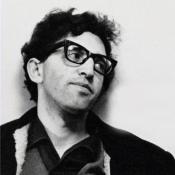

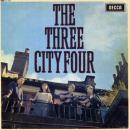


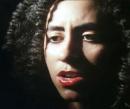
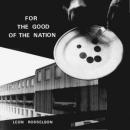
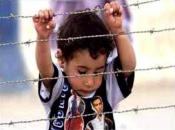
"The Last Chance – Eight Songs on Israel/Palestine" (2010)
Unapologetically challenging and provocative, "The Last Chance" weaves eight finely-crafted human stories around one of the burning issues of our times: the Israel/Palestine conflict. Songs to move the mind and the heart. (Leon Rosselson)
La storia violenta di Israele attraverso il confronto tra due ebrei.
Meier, il commerciante di carne di maiale, ha perso la famiglia a Bergen-Belsen e poi ha combattuto tutte le guerre per la Grande Israele. E' nazionalista, pragmatico e violento, ma oggi il suo problema non sono tanto gli arabi, che ha fatto sempre a pezzi, ma gli ebrei come Sam il ballerino – il suo giovane interlocutore – che vuole solo vivere e danzare, che non crede alla necessità della guerra permanente, che non freme per l'amor patrio, che è ebreo ma non gli importa di essere israeliano, che crede che tutti gli uomini abbiano speranze e sogni ugualmente degni e che nessuno uomo debba mai sopraffarne un altro...